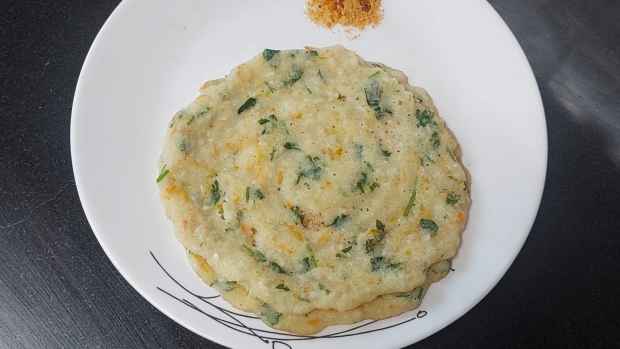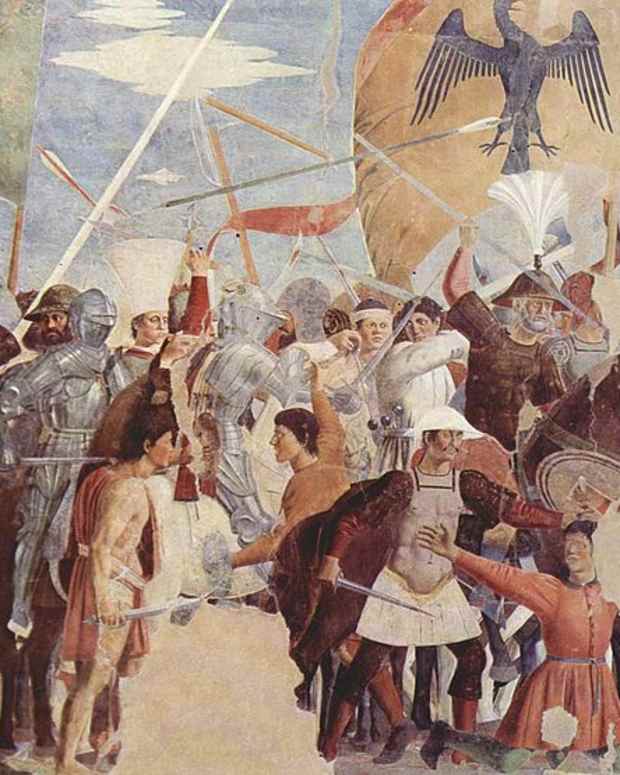10 Miraculous Foods That Cure Insomnia
Both night owls and early birds experience insomnia once in a while and many people face this problem on a regular basis. Sleep deprivation or disorder is one of the major reasons of chronic fatigue, severe anxiety, depression, heart disease, and a shorter lifespan. It affects your brain health and lowers your productivity level. While taking medicines seems to be the only treatment, what you put in your body may play a significant role in how sound your sleep is. Keep reading to figure out the importance of getting enough sleep, the major causes of insomnia, and the miraculous foods that will improve your zzz’s.
Sleep Is a Key to a Healthier and Longer Life
If you think that you’re too young to waste those 7 to 8 hours of your life daily on sleep, you’re wrong. Studies show that people who are chronically sleep deprived or get less than a recommended amount of sleep are more likely to die earlier. Moreover, a lack of sleep affects your physical health – no wonder so many 20 somethings suffer from serious diseases, including heart disease, diabetes, and cancer, and die before they turn 30. Here are just some of the most crucial health benefits scientists have discovered about a sound night’s sleep:
- Better memory: When you sleep, you stimulate a process called consolidation that involves converting information you get during the day from short-term memory into long-term memory. Sound sleep also improves your memory and declutters your mind.
- Longer life: Studies show that people who get too much and too little sleep die much earlier than those who sleep 7 to 8 hours each night.
- Reduce inflammation: Inflammation is linked to premature aging, stroke, heart disease, arthritis, diabetes, and many other illnesses.
- Prevent mental disorders: A lack of sleep contributes to anxiety, depression, and a number of other mental disorders.
What Are the Major Causes of Insomnia?
There are many things that can interrupt your sleep, but the main causes are:
- Poor daytime habits: napping, irregular sleep patterns, sugary treats, processed foods, caffeinated beverages, lack of exercise, etc.
- Stress, anxiety, overthinking, emotional issues like grief, worry, anger, and depression.
- Diseases: kidney disease, acid reflux, hyperthyroidism, Parkinson’s disease, allergies, asthma, etc.
- Prescription drugs: high blood pressure medications, antidepressants, pain relievers, contraceptives, etc.
- Circadian rhythm disturbances, sleep apnea, and other sleep disorders.
How Your Eating Plan Can Affect Your Sleep
Apart from the causes mentioned above, insomnia can be caused by wrong food choices. The food you eat throughout the day and before bedtime can affect your sleep and keep you awake all night long. The foods rich in gluten, sugar, caffeine, fat, alcohol, spices, and harsh chemicals must be your biggest enemies. Eliminating those items from your meal plan can help you cure insomnia and boost your health along the way. Nutrient deficiencies can lead to short-term insomnia as well. That’s why it’s critical to eat foods that aren’t only sleep-friendly but also nutrient-dense.
10 Foods That Promote Sound Sleep
Now, the core question is, “What are those 10 foods that can help you cure insomnia?” There is a myriad of them, yet the following 10 truly work miracles on your body and ensures more satisfying sleep. And it’s not me saying, it’s a science.
1. Almonds
One of the best foods for treating insomnia, almonds are chock-full of magnesium, which boasts powerful anti-stress properties and is a natural muscle relaxant. A research published in the Journal of Research in Medical Sciences stated that moderate magnesium consumption can treat subjective measures of insomnia, including sleep efficiency, ISI score, sleep onset latency, wrong sleep patterns, and early morning awakening. Moreover, according to the research, magnesium supplementation can aids with insomnia objective measures like concentration of serum cortisol, melatonin and serum renin, in elderly people.
Almonds are an excellent source of healthy plant compounds, including antioxidants:
- Quercetin – a plant compound that has anti-bacterial and anti-inflammatory properties.
- Kaempferol – an antioxidant that lowers your risk of chronic disease, inflammation, and cancer.
- Epicatechin – a compound that is good for your brain and heart health;
- Catechin – one of the powerful flavonoid antioxidants that is found in the almond skins.
- Resveratrol - a polyphenol that is good for your heart and wards off cancer and diabetes.
2. Oatmeal
A steaming bowl of oatmeal is a healthy way to start off your day, but it’s also a great bedtime snack that can aid in combating insomnia. It’s a fantastic source of a naturally occurring compound, melatonin, which causes drowsiness. Oatmeal is also overflowing with nutrients, such as protein, magnesium, vitamin B6, iron, calcium, vitamin A, dietary fiber, zinc, vitamin B5, vitamin B1 (thiamin), copper, and manganese, among the others.
Additionally, oatmeal is high in powerful antioxidants, such as polyphenols, avenanthramides, and ferulic acid. Having a bowl of oatmeal late in the evening will help to reduce blood pressure, stress, and ensure a restful sleep. Add in milk and you’ll get an effective and natural insomnia treatment with little to no effort at all.
3. Cherries
Munch on a handful of cherries or enjoy a glass of cherry juice and you will be dozing off in a jiff. Cherries are a natural source of a hormone that helps regulate your body clock – melatonin. It reduces your body temperature and makes you sleepy. Cherry juice has sleep-promoting effects as well. A study published in the European Journal of Nutrition found that when people had 2 glasses of cherry juice each day, they slept 39 minutes longer than usual. Many tourists often take melatonin capsules to handle jet lag. Cherries may be a wonderful alternative to those capsules.
Apart from melatonin, cherries (100 grams) provide your body with 16% of daily recommended intake of vitamin C and 25% of vitamin A. Plus, they’re fortified with protein, dietary fiber, potassium, magnesium, calcium, and iron, making them one of the healthiest ways to cure chronic insomnia.
4. Milk
Old wives' tales suggest that a cup of warm milk is the fastest way to make you sleepy. The thing is, milk is a natural source of tryptophan, an amino acid that helps to induce sleep and relieve chronic insomnia. Although milk hasn’t been shown to significantly increase the tryptophan levels, it does increase your internal body temperature, helping you relax and feel sleepy and calm. Cold milk, however, can have no effect on your body and won’t make you drowsy. On the contrary, it can keep you awake for longer.
A cup of warm milk contains calcium (30% of DRI), magnesium (6% of DRI), vitamin B12 (18% of DRI), vitamin A, vitamin B6, protein (16% of DRI), and potassium (10% of DRI), among the others. Add a teaspoon of raw honey to it for the best results.
If you’re vegetarian, consider drinking a cup of warm almond milk. It helps to relax your mind, and has a large amount of magnesium and calcium, especially if you buy fortified almond milk. When combined with cinnamon or/and honey, almond milk fights insomnia in no time.
Coconut milk is another non-dairy beverage to enjoy before bedtime. It contains 22% of daily recommended intake of magnesium, 21% of iron, 11% of vitamin C, 10% of protein, and 20% of dietary fiber. Add half a teaspoon of turmeric or a teaspoon of raw honey for a more calming effect.
5. Chia seeds
The popular superfood, chia seeds are chock full of magnesium, protein, calcium, iron, potassium, and fiber. They are also high in B vitamins, which help to tame your frayed nerves, and rich in all essential amino acids to keep your nervous system healthy. These tiny seeds are fortified with impressively powerful antioxidants that not only cure insomnia but also prevent different types of cancer.
You don’t have to eat chia seeds plain to reap their health benefits. Stir a teaspoon of them in milk, or smoothie, or add them to your oatmeal and salads. You can create chia pudding, which makes a tasty option for emergencies like having trouble to fall asleep due to stress and chronic insomnia. Studies suggest that incorporating chia seeds into sleep-inducing meals at your dinner each day can help you naturally fall asleep faster and gradually eliminate most of the symptoms of insomnia from your life.
6. Banana
One banana is a wealth of magnesium and potassium, which both help to relax your muscles and nervous system. The vitamin B6 found in banana stimulates the tryptophan into serotonin conversion process, promoting relaxation and making you drowsy. Despite being a natural energy booster, regular banana consumption can cure insomnia and relieve chronic fatigue and stress.
One medium banana provides your body with 1.3 gram of protein, 422 mg of potassium, 3.1 grams of dietary fiber, 20% of your recommended daily intake of vitamin B6 and 17% of vitamin C. It’s also a great source of magnesium, iron, vitamin A, omega-3 and 6 fatty acids, manganese, phosphorus, copper, phytosterols, and many other compounds, making banana a real nutritional powerhouse.
For a sleep-promoting and insomnia-fighting bedtime snack, add a sliced banana to a bowl of oatmeal, sprinkle chia seeds over it and enjoy. Not only will you sleep more peacefully at night, but you’ll also wake up full of energy. Banana also pairs well with almonds, and they both can have a positive effect on your sleep.
7. Honey
Raw honey is a natural source of glucose, which sends a signal to your brain to shut off orexin neurons - the chemicals known to cause alertness. L-tryptophan is a vital amino acid needed to your rest. It’s the precursor to serotonin that’s converted into melatonin by the body, improving your sleep patterns.
Honey causes a spike in insulin, driving tryptophan across the blood-brain barrier. Then, tryptophan is converted into serotonin, which in turn is converted into melatonin in your brain’s pineal gland. The final result is that you have enough melatonin in your system to send a signal to your body that “it’s time to fall asleep.”
One tablespoon of raw honey in the evening is enough for a good night's sleep, so make sure you don’t overeat it. Add honey to your milk, herbal tea, or oatmeal. Or eat it as it is. Besides great insomnia-fighting properties, raw honey boasts immunity-boosting, antibacterial and antifungal abilities. It also reduces your risk of heart disease and cancer.
8. Jasmine rice
Jasmine rice has a high glycemic index. This means your body digests it slowly, gradually releasing the glucose into your blood flow. A research published in the American Journal of Clinical Nutrition suggested that eating a bowl of jasmine rice at least 4 hours before sleep helps to fall asleep faster in comparison with consuming any other food that ranks high on the glycemic index at a similar time interval. The study showed that high GI meals stimulate the tryptophan production.
Jasmine rice is chock-full of B Vitamins, protein, carbs, dietary fiber, magnesium, and phosphorus. Not only does Jasmine rice improve your sleep, but it also prevents constipation, certain cancers, and is good for your skin. You can use it in stir fries, soups, salads, or cook it just like you do with oatmeal. If you don’t have Jasmine rice, don’t replace it with white or brown one as they have weak sleep-promoting abilities. Black rice is an ideal alternative.
9. Sweet potato
This is a brilliant choice for several reasons. Sweet potato is a wonderful source of potassium that helps to reduce muscle tension and lower high blood pressure (one of the major culprits of insomnia), and natural sugars that tend to digest slowly, balancing out the insulin levels. Sweet potato contains large amounts of vitamins A and C that combat stress, along with protein and fiber that keep you full (an empty stomach may keep you awake as well).Sweet potato also provides sleep-promoting complex carbs.
Just one sweet potato packs a huge nutritional punch, providing your body with 368% of your daily vitamin A intake, 15% of your daily vitamin B6 intake, 12% of your potassium intake, 15% of your dietary fiber, and 8% of magnesium.
There are many ways to reap all the health benefits sweet potatoes have to offer. You can roast them, make homemade chips, mashed potato, or bake them. The sky is the limit when it comes to cooking sweet potatoes.
10. Herbal tea
The last but not the least, herbal tea is a powerful drink that helps to combat bacteria, stress, and of course, insomnia. There are many types of herbal teas, though, so which ones are the best? Scientists claim that every herbal tea has certain sedative abilities, but not all of them can cure insomnia. Furthermore, each tea has its side effects when consumed in a wrong way. The following herbal teas are the most foolproof insomnia-fighting drinks out there:
- Chamomile tea: With a myriad of impressive snooze-promoting properties, chamomile tea will make you sleepy in no time, especially if your insomnia is connected to stress, anger, or overthinking. Have a cup of chamomile tea 1 to 2 hours before bedtime to avoid unexpected bathroom trips in the middle of the night and let the tea make you feel drowsy.
- Valerian tea: People have used valerian root to relieve anxiety and prevent insomnia for centuries. The valerian plant’s root has been proven to increase the onset of sleep and promote sound shut-eye during the night.
- Lavender tea: The tea boasts anti-stress and relaxing properties and can help you relieve headaches and migraines, which often lead to sleepless nights. Lavender tea may also help you relieve indigestion and nervous intestinal disorders, including burning sensation in your stomach, vomiting, belching, stomach pain, and nausea.
- Peppermint tea: This caffeine-free drink helps to release any muscle tension, reduce stress, and can give you a more restful sleep. You can combine peppermint with any other herbal tea for double effect.
- Lemon balm tea: If you’re having trouble falling asleep due to stress or fatigue, try drinking a nice warm cup of lemon balm tea 30 minutes before bedtime. Not only will lemon balm tea help lower your stress level, but it’ll also combat your fatigue and give you more energy for the next day.
- Banana infused tea: Don’t throw away those banana peels; dry them instead. Banana peels contain magnesium and potassium, the key nutrients for better sleep. The next time you experience insomnia, brew your own banana tea and see what will happen.
Insomnia isn’t just a disorder; it can have a detrimental effect on your body. Be sure you consult a doctor before trying any natural methods to cure insomnia. Also, remember that moderation is a must here, as too much of a good thing can lead to terrible consequences. If nothing helps, talk to your doctor to figure out the core reason of your constant sleepless nights and eliminate sleep stealers from your life.
This content is accurate and true to the best of the author’s knowledge and does not substitute for diagnosis, prognosis, treatment, prescription, and/or dietary advice from a licensed health professional. Drugs, supplements, and natural remedies may have dangerous side effects. If pregnant or nursing, consult with a qualified provider on an individual basis. Seek immediate help if you are experiencing a medical emergency.
© 2017 Haider
What do you think?
Dora Weithers from The Caribbean on February 24, 2017:
Wow! Your article is chock full of good information. I like everything you listed except chamomile tea. The information jasmine rice is surprising. Excellent article altogether.




















